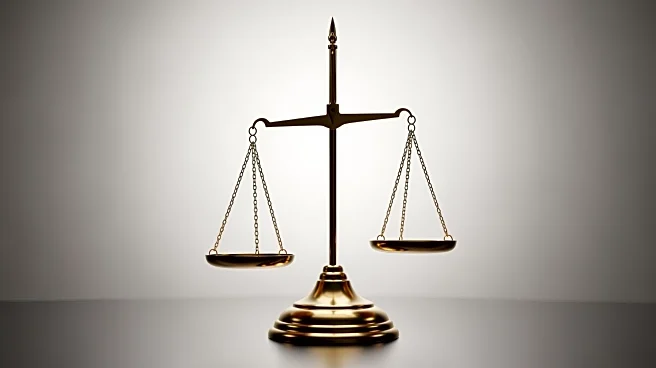What's Happening?
The NCAA's decision to allow student-athletes to profit from their names, images, and likenesses (NIL) has led to significant changes in its enforcement role. The College Sports Commission (CSC) is responsible for overseeing compliance with NIL agreements,
but it faces challenges due to limited staffing and early enforcement issues. The CSC recently revised its approval numbers for NIL deals, indicating a significant reduction in the number of approved agreements and their total value. The commission has set up a tip line for anonymous reporting and is using deterrence measures, such as the threat of postseason bans, to enforce compliance.
Why It's Important?
The enforcement challenges faced by the CSC highlight the complexities of regulating NIL agreements in college sports. The ability for student-athletes to profit from their NIL represents a fundamental shift in the NCAA's model of amateurism, with potential implications for the balance of power between athletes, schools, and the NCAA. The enforcement issues could impact the effectiveness of the NIL system and the fairness of compensation for student-athletes. Additionally, the legal concerns surrounding the CSC's role in determining valid business purposes for NIL deals could lead to further scrutiny and potential legal challenges.
What's Next?
The NCAA and CSC will need to address the enforcement challenges to ensure the integrity of the NIL system. This may involve increasing staffing, refining enforcement processes, and addressing legal concerns related to the CSC's authority. Stakeholders, including schools, athletes, and legal experts, may push for reforms to improve the transparency and fairness of NIL agreements. The NCAA's recent emergency bylaw amendment requiring schools to disclose reporting failures within two business days indicates a proactive approach to addressing compliance issues.
Beyond the Headlines
The NIL system represents a broader shift in the relationship between college sports and commercial interests. The ability for student-athletes to profit from their NIL could lead to increased commercialization of college sports and changes in the dynamics between athletes, schools, and sponsors. The enforcement challenges faced by the CSC may prompt discussions about the future of college sports and the role of regulatory bodies in ensuring fair compensation and compliance.
















